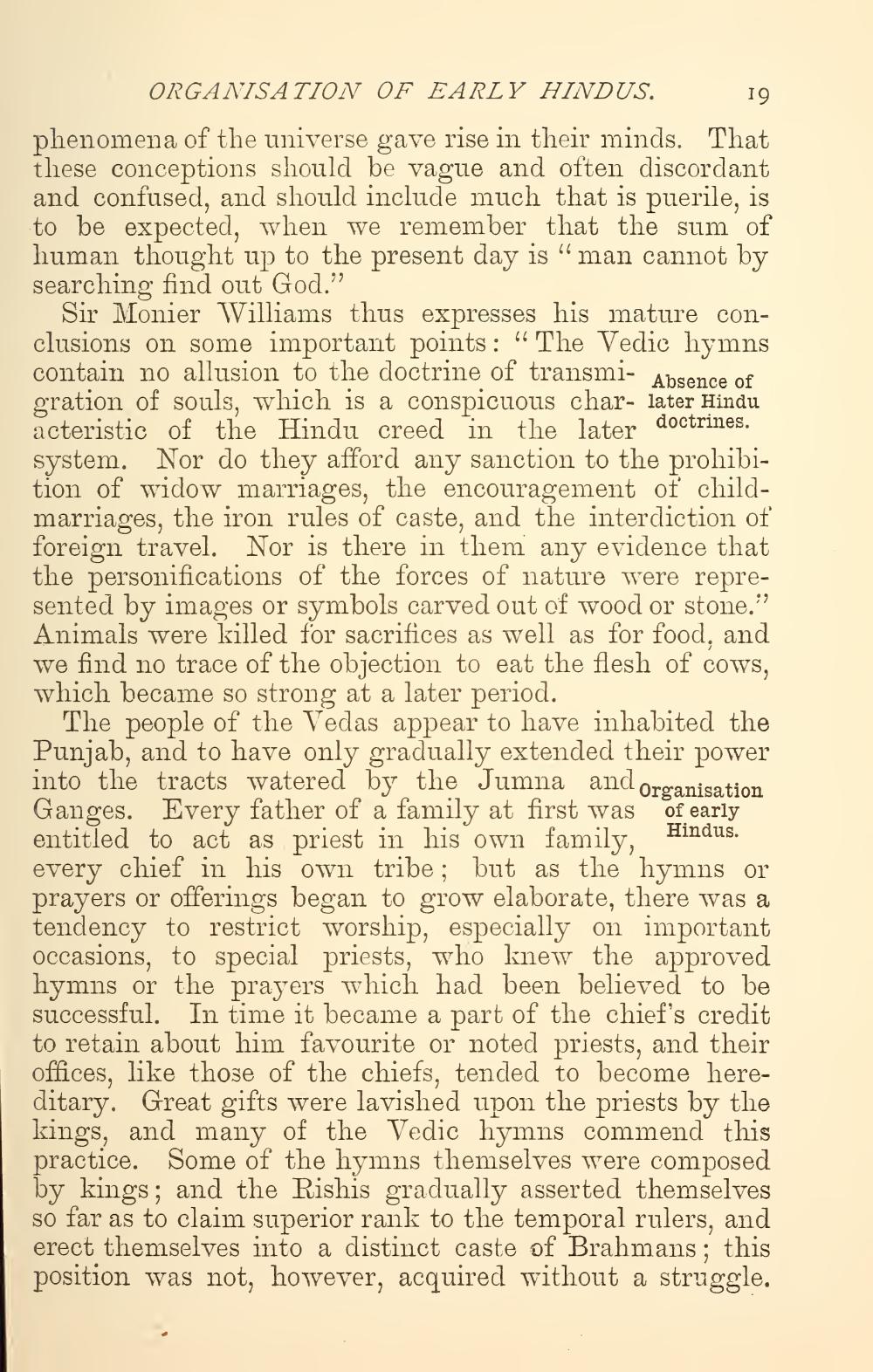________________
ORGANISATION OF EARLY HINDUS. 19 phenomena of the universe gave rise in their minds. That these conceptions should be vague and often discordant and confused, and should include much that is puerile, is to be expected, when we remember that the sum of human thought up to the present day is “man cannot by searching find out God."
Sir Monier Williams thus expresses his mature conclusions on some important points : “ The Vedic hymns contain no allusion to the doctrine of transmi- An gration of souls, which is a conspicuous char- later Hindu acteristic of the Hindu creed in the later doctrines. system. Nor do they afford any sanction to the prohibition of widow marriages, the encouragement of childmarriages, the iron rules of caste, and the interdiction of foreign travel. Nor is there in them any evidence that the personifications of the forces of nature were represented by images or symbols carved out of wood or stone.' Animals were killed for sacrifices as well as for food, and we find no trace of the objection to eat the flesh of cows, which became so strong at a later period.
The people of the Vedas appear to have inhabited the Punjab, and to have only gradually extended their power into the tracts watered by the Jumna and Organisation Ganges. Every father of a family at first was of early entitled to act as priest in his own family, every chief in his own tribe; but as the hymns or prayers or offerings began to grow elaborate, there was a tendency to restrict worship, especially on important occasions, to special priests, who knew the approved hymns or the prayers which had been believed to be successful. In time it became a part of the chief's credit to retain about him favourite or noted priests, and their offices, like those of the chiefs, tended to become hereditary. Great gifts were lavished upon the priests by the kings, and many of the Vedic hymns commend this practice. Some of the hymns themselves were composed by kings; and the Rishis gradually asserted themselves so far as to claim superior rank to the temporal rulers, and erect themselves into a distinct caste of Brahmans; this position was not, however, acquired without a struggle.
Hindus.




